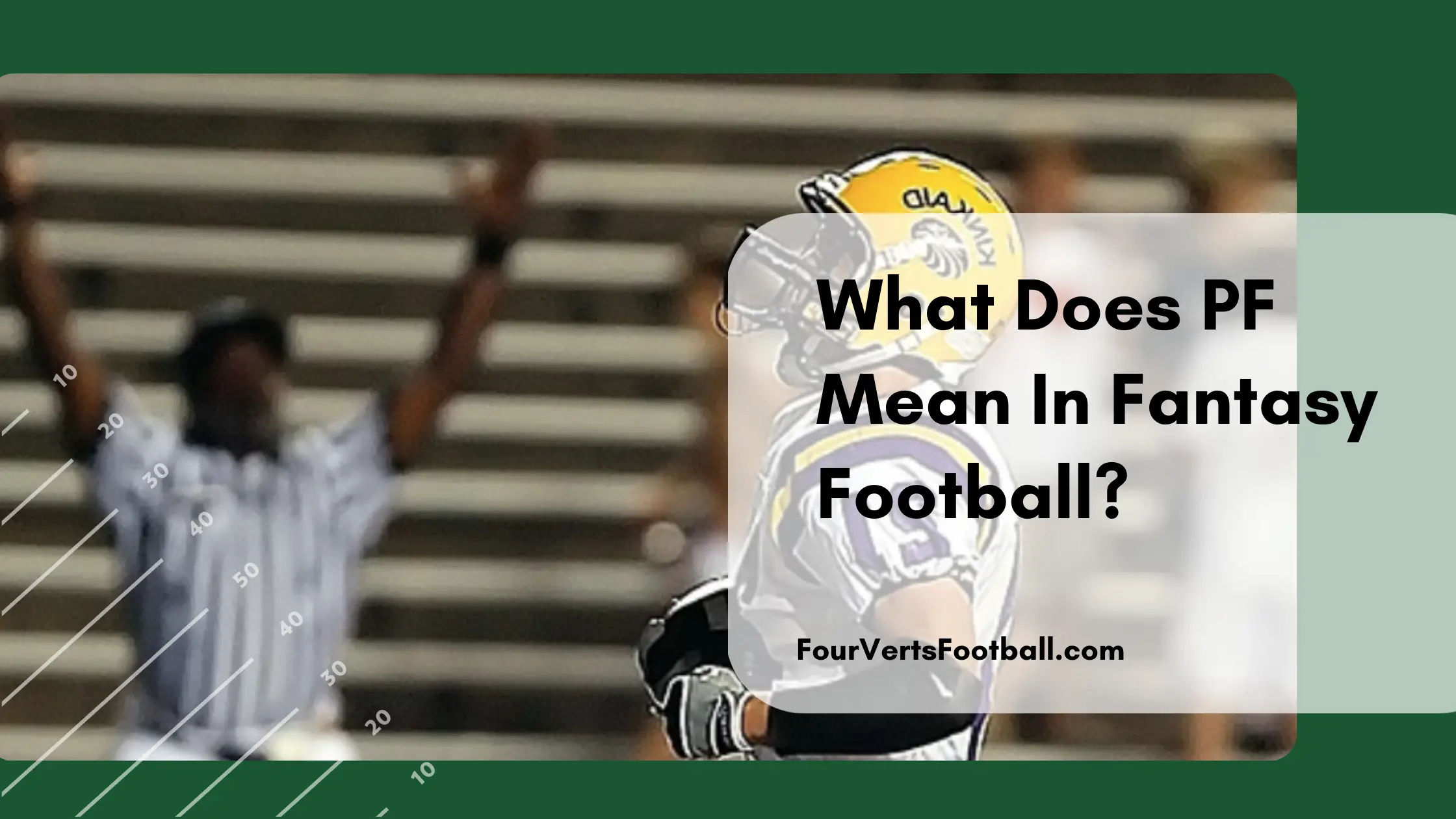If you have recently started playing fantasy football some of the many acronyms and terminology may be confusing to you. The acronym that leaves many fantasy football managers confused is PF.
PF in football stands for points for and refers to the total number of points your fantasy team has scored throughout the season. Points for is an important statistic because it can be used as a tiebreaker if teams are equal in the win column.
The tiebreaker is the most important aspect of PF in fantasy football. The fact that this statistic is so high up in the tiebreaker for playoff seeding is what makes it so much more important than other fantasy statistics.
When two teams are tied for a playoff position the first tiebreaker will be those teams head to head matchups. This means whatever team won more matchups when playing against one another will move on.
In many fantasy football leagues, you are going to play each opponent twice. This often results in head to head matchups being split.
This means if a head to the head matchup is split the teams will then compare points for in order to determine which team is going to the playoffs.
If three teams were tied for a playoff spot PF is often used as the first tiebreaker. Meaning which team of the three has a higher PF throughout the season is going to be going to the playoffs.
These tiebreakers also play into playoff seeding. When teams are both in playoff spots with the same number of wins the league must determine which team is higher ranked. If head to head is the same then the playoff seeding will be determined by points for.
This could be the difference between earning yourself a first-round by in the playoffs.
Using PF In Fantasy Football
Now that you understand what PF is in fantasy football it’s time to learn how you can use your knowledge of this statistic to your advantage.
Don’t Bench Players If The Matchup Is Won
One of the most important factors in knowing what PF means in fantasy football is that you know it can be a crucial tiebreaker.
One of the reasons this is so crucial is because this allows you to maximize this statistic throughout the season so that you can win a potential tiebreaker.
One example where this knowledge can be used is when you are winning a matchup with a single player left. Oftentimes teams in the lead in this situation will simply bench their remaining player in order to guarantee the win.
Fantasy managers in this situation are focusing only on the win. By benchign there final player they can secure the win instead of risking the small chance the player may score negative points and lose them the matchup.
The reality is scoring negative points in fantasy almost never happens. And since points for can be such a crucial tiebreaker the right decision is to always keep your final player in the starting lineup.
It is much more likely that points for will be a tiebreaker than your final player scoring negative points and losing the matchup for your team.
If PF Is lost Go For Head To Head
Understanding that points for in fantasy football can be a tiebreaker is also helpful when you are behind in the statistic. If you know that you are behind in the PF statistic and there is no way to catch up you may need to play riskier in order to win.
Say you are playing an opponent late in the year and this will give you a chance to win the head to head. If you are behind in the PF stats you know that you must win the tiebreaker.
This may spur you to make a trade or play a boom or bust player if you anticipate you need a big week to win.
Understanding when you are losing this tiebreaker means you will have to make decisions that allow you to win while avoiding this tiebreaker.
Keep An Eye On Points For Late In The Season
When it gets late in the season it may make sense to check out the standings to assess where you are at in terms of points for. It may be worthwhile to determine whether there are any teams you may end up tied with at the end of the season.
If there are, you want to determine if you would the points for matchup. You can then use this information to determine if you should make a push for more points.
If you are going to have to drive up your points for to win a few tiebreakrs it may be worth it to trade for a player or two.

